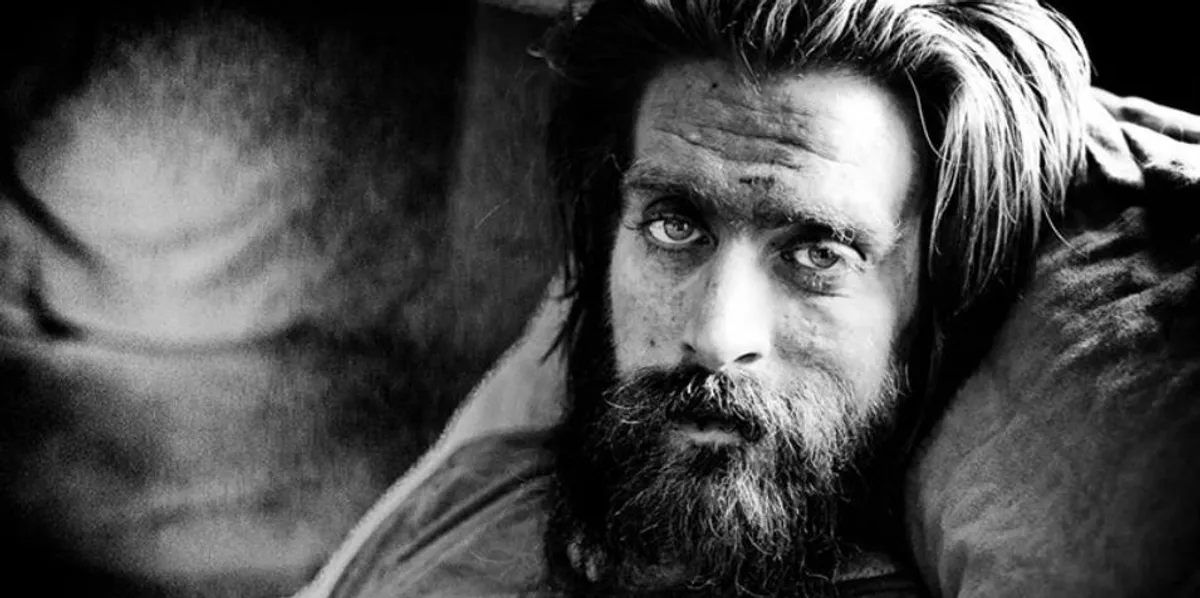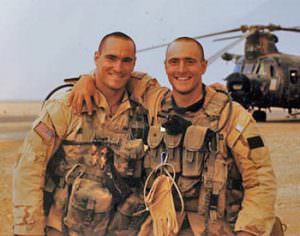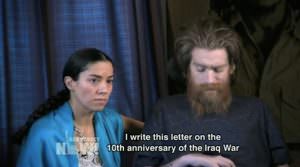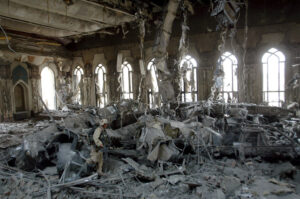“We Were Used. We Were Betrayed.”
Remembering the suffering, courage, and patriotism of Iraq War veteran Tomas Young. Photo via Common Dreams / Nation for Change
Photo via Common Dreams / Nation for Change
On September 13, 2001, a 22-year old Tomas Young enlisted in the U.S. Army after being inspired by George W. Bush’s bullhorn speech atop the rubble of the World Trade Center. Over the next two years, he watched with growing confusion, and then alarm, as the administration’s attention turned from Afghanistan, where he expected to be deployed, toward Iraq, a country with no connection to the 9/11 attacks. Five days after his deployment to that country in 2004, an insurgent’s bullet shattered his spine, leaving him paralyzed from the waist-down and in constant and worsening nerve pain. When he returned to the U.S., he became one of the first Iraq veterans to speak out publicly and organize against the war. His journey as a spokesperson for wounded and antiwar veterans was the subject of a heralded 2007 documentary, “Body of War,” co-produced by Phil Donahue, a longtime liberal talk show host who was fired from MSNBC for opposing the war.
As his condition deteriorated in the late aughts, the wheelchair-bound Young was forced to slow down his activism. In 2013, he made the decision to enter hospice. It was there that he penned and published “The Last Letter” with Truthdig, timed to the tenth anniversary of the Iraq War. The piece was a searing indictment of the men and women who sent him and his fellow enlistees to Iraq, every word powered by a cold fury that left open the possibility of something like secular salvation for those the letter addressed. The letter immediately resonated across the globe and was reprinted and translated into many languages.
In a moving appearance on Democracy Now in 2013, a frail and bearded Young struggled to pronounce his words as he read “The Last Letter” to an international audience. “I have,” he said, “like many other disabled veterans,”
come to realize that our mental and physical wounds are of no interest to you, perhaps of no interest to any politician. We were used. We were betrayed. And we have been abandoned… My day of reckoning is upon me. Yours will come. I hope you will be put on trial. But mostly I hope, for your sakes, that you find the moral courage to face what you have done to me and to many, many others who deserved to live. I hope that before your time on earth ends, as mine is now ending, you will find the strength of character to stand before the American public and the world, and in particular the Iraqi people, and beg for forgiveness.
Shortly after writing his “Last Letter” for Truthdig, Young decided to leave hospice and accept further medical treatment. He died on November 10, 2014, at the age of 34. Following his death, Phil Donahue published a remembrance of Young in The Nation and Amy Goodman devoted a column to him. Former Truthdig columnist Chris Hedges spoke with Young while he was in hospice and then, after his death, chronicled his last days. Nearly ten years after Young’s death, his suffering, struggle, courage, and fiery eloquence stand among our most powerful testaments to the incalculable human cost of a criminal and unnecessary war.
Your support matters…Independent journalism is under threat and overshadowed by heavily funded mainstream media.
You can help level the playing field. Become a member.
Your tax-deductible contribution keeps us digging beneath the headlines to give you thought-provoking, investigative reporting and analysis that unearths what's really happening- without compromise.
Give today to support our courageous, independent journalists.






You need to be a supporter to comment.
There are currently no responses to this article.
Be the first to respond.